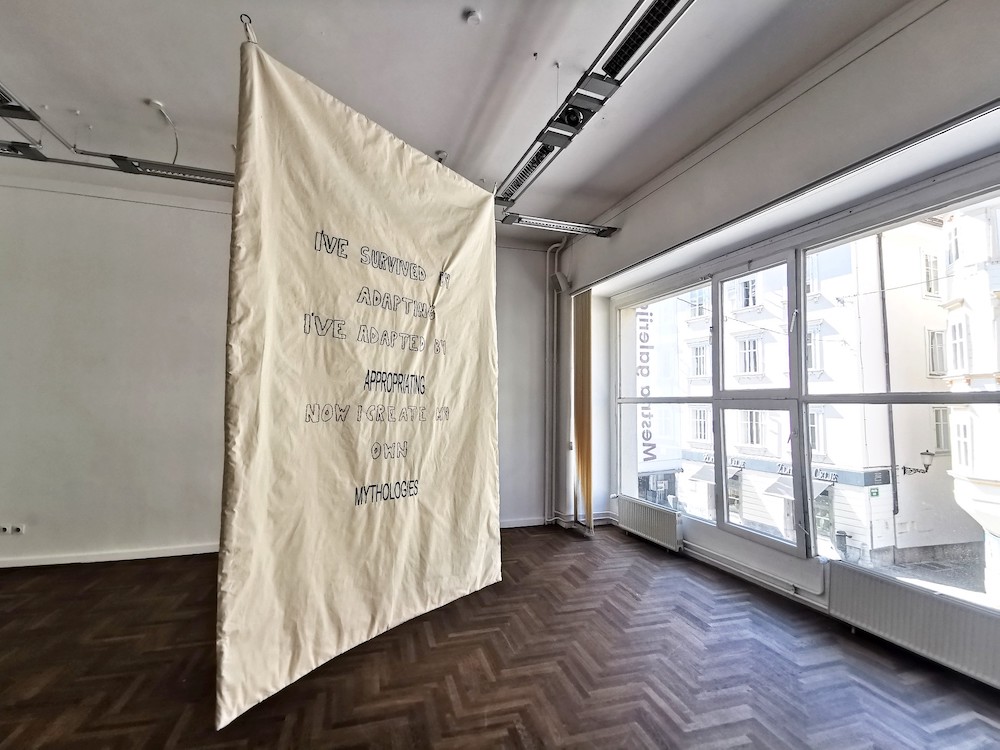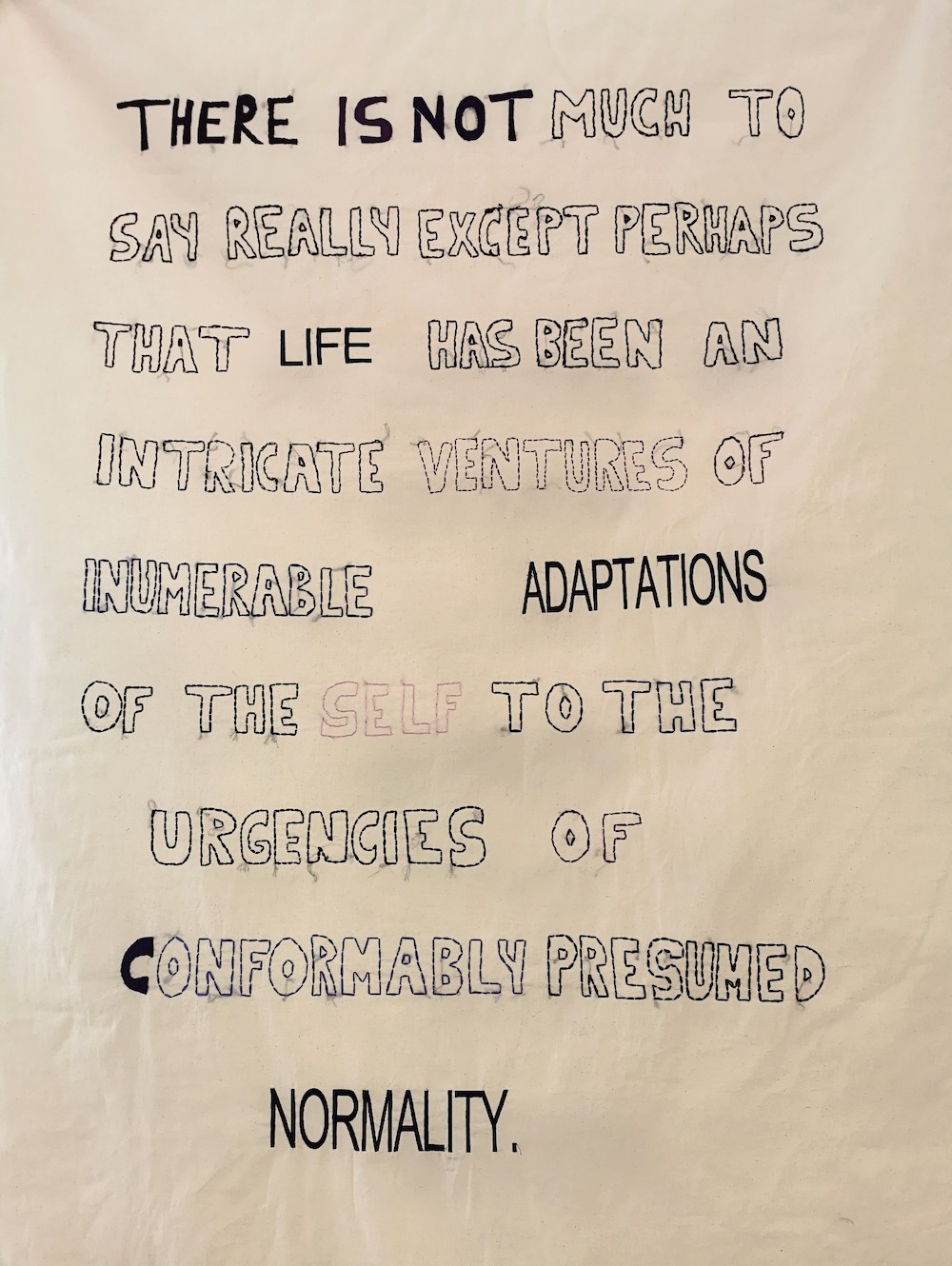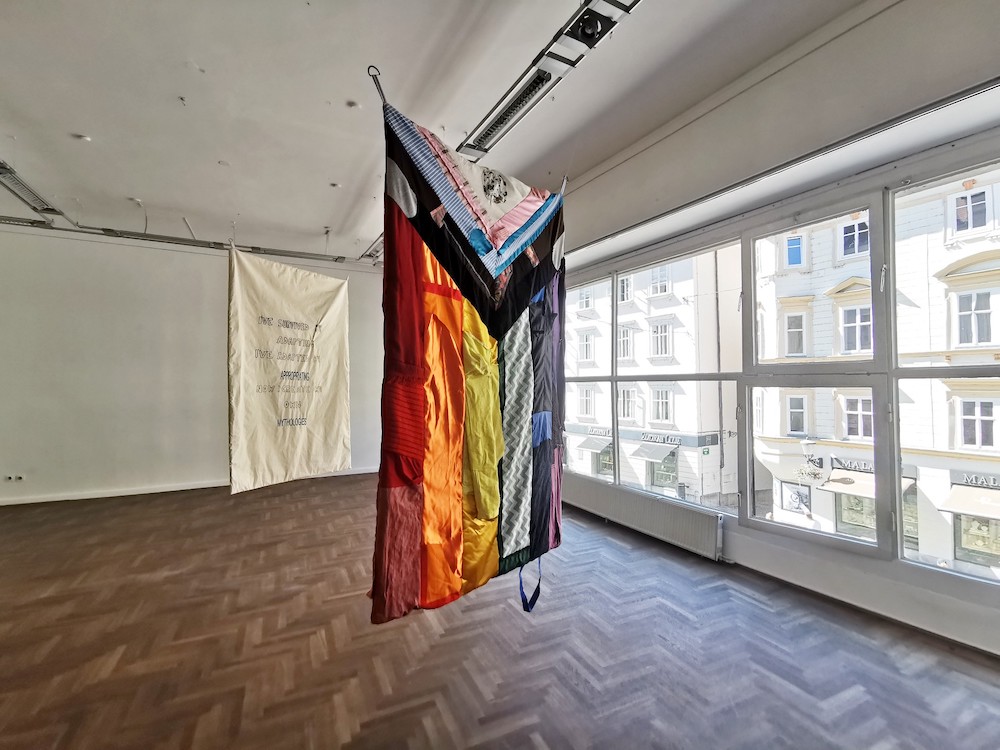Adapting by Transgressing is a textile diptych composed of two flags (or blankets) of similar size, made using quilting and embroidery techniques. Their spatial arrangement invites a choreographic encounter — encouraging viewers to move between and around them, engaging both physically and conceptually with the layered textiles and textual narratives. Each flag features a textual observation, both of which explore subversive survival strategies as responses to — and revelations of — restrictive social norms:
There is not much to say really, except perhaps that life has been an intricate venture of innumerable adaptations of the self to the urgencies of conformably presumed normality.
I’ve survived by adapting. I’ve adapted by appropriating.
Now, I create my own mythologies.
This work is a poetic meditation on the identity politics of queerness — its fragilities, its mental vulnerabilities, and the intergenerational trauma that often goes unspoken yet is deeply embedded in the fabric of lived experience. Adapting by Transgressing reflects Knezović’s ongoing inquiry into the dialectics of visual representation and design — specifically, how these often fail to communicate the complexities of psychological and social conditioning. These misalignments, or misgivings, manifest in the nuances of mental health struggles and social dissociation.
While celebrating the multiplicity and fluidity of queer identity, Knezović also interrogates the tension between semiotics of liberation and the ideological constraints of canonized normality. The work appropriates and reconfigures the Progressive Pride Flag, originally designed by Daniel Quasar in 2017. In Knezović’s hands, the flag is ruptured — cut, torn, and back-stitched using second-hand clothing donated by queer and neurodivergent individuals. The result is a deliberately incoherent, tactile vocabulary: one that resists polished symbolism in favor of haptic truth-telling. The visible seams and raw materiality reveal fragility, intervention, and the presence of bodies.
At its core, Adapting by Transgressing is driven by a concern for mental health care within queer communities. It critiques the banner-like, often superficial identification politics of queer visibility culture, revealing the precarity beneath — the emotional labor, the structural neglect, and the urgent need for sustainable mental health infrastructures.
Contemporary health care systems, especially those addressing neurodivergence and queer-specific concerns, remain far from adequate. They fall short in decolonizing language, in refining labeling systems, and in shifting institutional behaviors. The systemic failure to respond to this silent mental health pandemic is deeply tied to the ongoing dominance of “standardized sanity” — a mythology that has shaped socio-political discourse, cultural narratives, and institutional power for centuries.[1]
Marginalization is perpetuated through institutional processes of naming — a classificatory matrix rooted in archival supremacy. Taking a Foucauldian lens, one might view the very act of normalizing sanity as a peculiar madness of its own.[2] In Adapting by Transgressing, Knezović gestures toward these mechanisms of confinement, revealing the psychic and communal toll they exact — particularly on queer individuals navigating their own mental and emotional architectures.
The day we acknowledge our inclinatory relationship with madness will be the day we start to collectively heal.
—
[1] Here, I consider multiple histories beyond the dominant Occidental canon and its archival supremacy.
[2] Foucault, Michel. Madness and Civilization. London: Tavistock, 1967.





